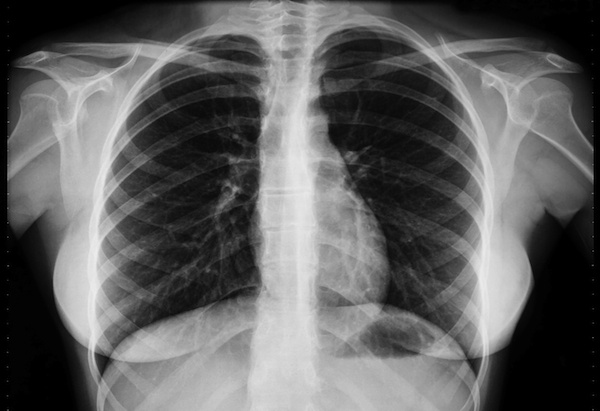10 Things You Didn't Know About Breasts
They're always hanging around—but most of us rarely give them a second thought. A science journalist exposes the impressive, eye-popping facts.

Photo: Thinkstock
They're different from all the other breasts on the planet.
Humans are the only mammals to have breasts that develop in puberty and then remain permanently enlarged, says Florence Williams, the author of Breasts: A Natural and Unnatural History. Other female primates have them when necessary (i.e., their mammary glands grow during lactation and deflate after weaning). Ours, fleshy and fatty, "stick around regardless of our reproductive status," she says.
They're relatively late bloomers.
Williams was fascinated to learn that our breasts are the last organ in our bodies to develop. Unlike, say, the brain or liver, whose architecture is set at birth, breasts don't really come into their own until well after birth. "The breast has to fully build itself out of nothing during puberty," she says. "Even if a woman never gets pregnant, her breasts pack and unpack a little bit each month, just in case." Over the course of a menstrual cycle, breast volume varies by 13.6 percent, owing to water retention and cell growth. (The average breast weighs just over a pound, but this can double in late pregnancy.)
They're different from each other.
If you were secretly dismayed to discover that you don't fill out both sides of your bikini top in exactly the same way, take heart: Williams found that one breast is usually, on average, 39.7 milliliters bigger than the other (that's nearly a fifth of a cup). This makes sense, she says—we don't expect to have two feet, two ears or two knees that are exactly the same.
They likely enabled us to communicate on a higher, more complex level.
Olav Oftedal, PhD, a Smithsonian researcher, told Williams, explaining that higher order thinking, including speech and learning, grew out of lactation because mothers and offspring had to bond and be close. Other scientists believe that the shape of the human breast influenced the development of our infants’ palates and oral motor skills, which then facilitated our ability to form words.,
...yet they can also cause men to regress.
Research has shown that men perform poorly on cognitive tests after viewing images of top-heavy women. Steven M. Platek, a neuroscientist at Georgia Gwinnett College who has conducted experiments in this area, thinks that men were so distracted by the pictures that they couldn't focus on other tasks.
Next: Why breasts are so vulnerable...and how to protect yours
Humans are the only mammals to have breasts that develop in puberty and then remain permanently enlarged, says Florence Williams, the author of Breasts: A Natural and Unnatural History. Other female primates have them when necessary (i.e., their mammary glands grow during lactation and deflate after weaning). Ours, fleshy and fatty, "stick around regardless of our reproductive status," she says.
They're relatively late bloomers.
Williams was fascinated to learn that our breasts are the last organ in our bodies to develop. Unlike, say, the brain or liver, whose architecture is set at birth, breasts don't really come into their own until well after birth. "The breast has to fully build itself out of nothing during puberty," she says. "Even if a woman never gets pregnant, her breasts pack and unpack a little bit each month, just in case." Over the course of a menstrual cycle, breast volume varies by 13.6 percent, owing to water retention and cell growth. (The average breast weighs just over a pound, but this can double in late pregnancy.)
They're different from each other.
If you were secretly dismayed to discover that you don't fill out both sides of your bikini top in exactly the same way, take heart: Williams found that one breast is usually, on average, 39.7 milliliters bigger than the other (that's nearly a fifth of a cup). This makes sense, she says—we don't expect to have two feet, two ears or two knees that are exactly the same.
They likely enabled us to communicate on a higher, more complex level.
Olav Oftedal, PhD, a Smithsonian researcher, told Williams, explaining that higher order thinking, including speech and learning, grew out of lactation because mothers and offspring had to bond and be close. Other scientists believe that the shape of the human breast influenced the development of our infants’ palates and oral motor skills, which then facilitated our ability to form words.,
...yet they can also cause men to regress.
Research has shown that men perform poorly on cognitive tests after viewing images of top-heavy women. Steven M. Platek, a neuroscientist at Georgia Gwinnett College who has conducted experiments in this area, thinks that men were so distracted by the pictures that they couldn't focus on other tasks.
Next: Why breasts are so vulnerable...and how to protect yours



